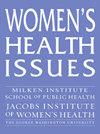感知有足够的信息作出避孕决定:以人为中心的避孕获得的新指标。
IF 2.5
2区 医学
Q2 PUBLIC, ENVIRONMENTAL & OCCUPATIONAL HEALTH
引用次数: 0
摘要
信息是获取避孕药具的关键组成部分。本研究提出了一种新的以人为中心的避孕方法:感知有足够的信息来选择一种避孕方法。方法:在2022年1月至3月期间,我们使用NORC的AmeriSpeak小组对15至44岁的女性进行了全国代表性的在线调查。我们描述受访者是否觉得他们有足够的信息避孕决策和所需的信息类型。我们调查了具有足够信息的感知和关键应答者特征之间的双变量关联。我们使用逻辑回归来调查过去的性健康和生殖健康(SRH)护理和避孕自我效能感是否与感觉自己有足够的信息有关。结果:在分析样本(未加权n = 3037)中,73.5%的人认为自己有足够的信息来决定避孕,11.8%的人没有,14.7%的人不确定。那些认为自己没有获得足够信息的人(未加权n = 687)最需要的是有关副作用的信息(33.4%)。在双变量分析中,年轻、男同性恋/女同性恋、受教育程度较低、没有保险的受访者不太可能觉得自己掌握了足够的信息。回归分析表明,感觉自己有足够的信息与过去的高质量生殖健康护理经验和避孕自我效能之间呈正相关。含义和结论:我们的数据表明,在那些认为自己有足够信息来做出避孕决定的人身上存在不平等。获得足够信息的感觉与护理质量和未来获得避孕措施的能力有关。本文支持认识信息的重要性,作为一个关键部分,以人为本的避孕获取。本文章由计算机程序翻译,如有差异,请以英文原文为准。
Perception of Having Enough Information to Make Contraceptive Decisions: A Novel Metric of Person-Centered Contraceptive Access
Introduction
Information is a critical component of contraceptive access. This study presents a new person-centered metric of contraceptive access: perception of having sufficient information to choose a contraceptive method.
Methods
Between January and March 2022, we fielded a nationally representative online survey among 15- to 44-year-olds assigned female sex at birth using NORC's AmeriSpeak panel. We describe whether respondents felt they had enough information for contraceptive decision making and types of information needed. We investigate bivariate associations between perception of having enough information and key respondent characteristics. We use logistic regression to investigate whether past experiences of sexual and reproductive health (SRH) care and contraceptive self-efficacy are associated with feeling one has enough information.
Results
Of the analytic sample (unweighted n = 3,037), 73.5% felt they had enough information to decide about contraception, 11.8% did not, and 14.7% were unsure. Those who did not feel they had enough information (unweighted n = 687) most commonly needed information about side effects (33.4%). In bivariate analyses, respondents who were younger, were gay/lesbian, had lower educational attainment, and were uninsured were less likely to feel they had adequate information. Regression analyses indicated a positive association between feeling one had enough information and past experiences of high-quality SRH care and contraceptive self-efficacy.
Implications and Conclusions
Our data indicate inequities in who felt they had enough information to make contraceptive decisions. Perception of having enough information is related to quality of care and perceived future ability to access contraception. This paper supports the importance of recognizing information as a key part of person-centered contraceptive access.
求助全文
通过发布文献求助,成功后即可免费获取论文全文。
去求助
来源期刊

Womens Health Issues
Multiple-
CiteScore
4.50
自引率
6.20%
发文量
97
审稿时长
32 days
期刊介绍:
Women"s Health Issues (WHI) is a peer-reviewed, bimonthly, multidisciplinary journal that publishes research and review manuscripts related to women"s health care and policy. As the official journal of the Jacobs Institute of Women"s Health, it is dedicated to improving the health and health care of all women throughout the lifespan and in diverse communities. The journal seeks to inform health services researchers, health care and public health professionals, social scientists, policymakers, and others concerned with women"s health.
 求助内容:
求助内容: 应助结果提醒方式:
应助结果提醒方式:


